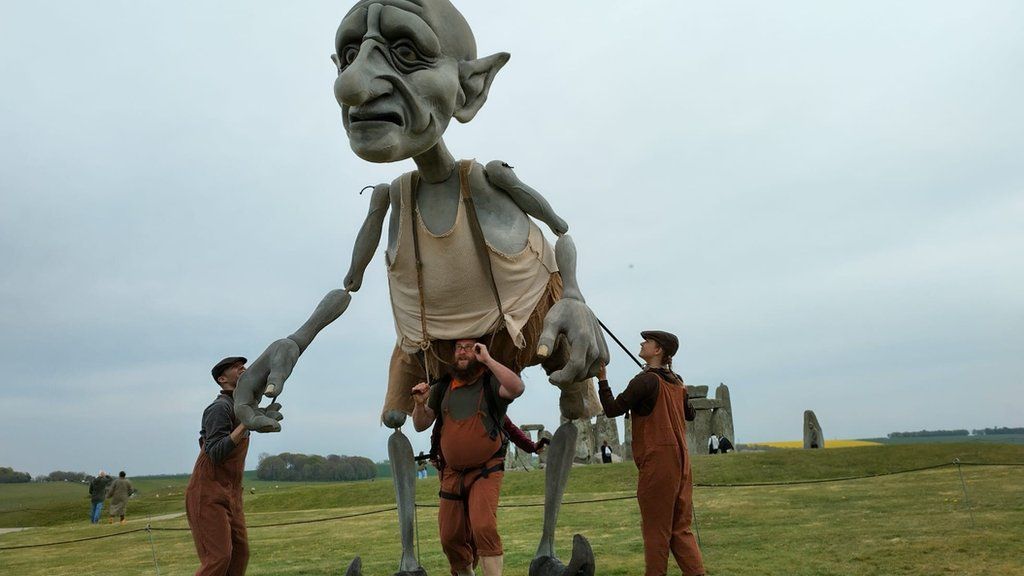Gnomus, the giant puppet, entertains visitors at the ancient monument
- Published

Visitors to Stonehenge are being treated to an insight into the ancient site by a giant puppet, called Gnomus, who has tales of when it was built.
Appearing to be hewn from the same sarsen rock as the stones, the character Gnomus is said to remember the Neolithic creators of Stonehenge.
The four metre tall giant entertains families with tales about the history and mythology surrounding the circle.
Gnomus is taking part in performances by the Puppets with Guts arts company.
Jennifer Davies, English Heritage's Head of Historic Properties for Stonehenge, said: "He is huge, fun and very friendly.
"Stonehenge has been inspiring art and performance for millennia and for us to be able to welcome Gnomus is really special.
"It is a truly memorable experience," she added.
"He is unique and the stones, of course, are unique, and to put the two together is amazing."
Earth's caretaker
The Puppets with Guts outdoor arts company aims to inform visitors about the significance of the Unesco World Heritage site.
The performances throughout the bank holiday weekend are a celebration of humanity's relationship to the stones and landscape and how future generations can help to preserve it.
"Gnomus is as old as the earth, even older than Stonehenge, so he has tales to tell our families about how the stones came to be on Salisbury Plain.
"He has an important message for us all," said Ms Davies.
The gigantic trilithons that make up the stone circle were once known as 'the Giant's Dance'.
The character Gnomus said: "I am four and a half billion years old and I am a caretaker of the Earth.
"The stones are still here and doing very well, they are my bestest friends.
"When the Neolithic people were here we listened to the amazing music they made and the sound inside those stones is magical," he added.
"It is one of my favourite places to come to."
Follow BBC West on Facebook, Twitter and Instagram. Send your story ideas to: bristol@bbc.co.uk
Related Topics
- Published2 March 2022
- Published17 February 2022